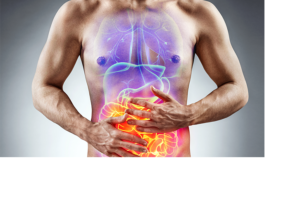Bay Biosciences provides high quality, clinical grade, fresh frozen biopsy tissue bio-specimens, stool samples with matched cryogenically preserved sera (serum), plasma and peripheral blood mononuclear cells (PBMC) biofluid samples from patients diagnosed with Irritable bowel syndrome (IBS).
The sera (serum), plasma and PBMC biofluid specimens are processed from Irritable bowel syndrome (IBS) patient’s peripheral whole-blood using customized collection and processing protocols. The Irritable bowel syndrome (IBS) fresh frozen biopsy tissue samples and biofluids are collected from unique patients diagnosed with Irritable bowel syndrome (IBS) and are provided to a valued pharmaceutical customer for research, diagnostics, discovery and drug development.
Detailed clinical data, Irritable bowel syndrome (IBS) patients history, symptoms, complete blood count (CBC), serology, chemotherapy information, elevated biomarker levels, genetic and metabolic information, histopathological findings, annotations associated with Irritable bowel syndrome (IBS) specimens is provided to a valued customer for research, development and drug discovery.
The Irritable bowel syndrome (IBS) stool samples and matched sera (serum), plasma and peripheral blood mononuclear cells (PBMC) biofluid are processed from patients peripheral whole-blood using customized collection and processing protocols.

Irritable Bowel Syndrome (IBS) Overview
Irritable bowel syndrome (IBS) is a common gastrointestinal (GI) disorder that that affects the large intestine, it considerably reduces the quality of life of the affected patients. IBS is a group of intestinal symptoms that typically occur together. The symptoms vary in severity and duration from patient to patient. However, they last at least three months for at least three days per month.
Irritable bowel syndrome (IBS) is also known as spastic colon, irritable colon, mucous colitis, and spastic colitis. It is a separate disease than Inflammatory bowel disease such as celiac disease or Crohn’s disease and is not related to other bowel conditions.
Irritable bowel syndrome (IBS) symptoms range from diarrhea to constipation, or a combination of the two, with abdominal pain or discomfort existing alongside abdominal distension. The degree of symptoms varies in different patients from tolerable to severe, and the time pattern and discomfort varies immensely from patient to patient. Some patients complain of daily symptoms, while others report intermittent symptoms at intervals of weeks or months. irritable bowel syndrome (IBS) is not known to be associated with the development of serious disease or with excess mortality. However, IBS causes a reduced quality of life with the same degree of impairment as major chronic diseases, such as diabetes, congestive heart failure, renal insufficiency and hepatic cirrhosis. Although a minority (10%-50%) of irritable bowel syndrome (IBS) patients seek healthcare, they generate a substantial workload in both primary and secondary care. The annual costs in the United States, both direct and indirect, for the management of patients with IBS are estimated at $15-$30 billion.
Signs and Symptoms of Irritable Bowel Syndrome (IBS)
The signs and symptoms of irritable bowel syndrome (IBS) vary but are usually present for a long time. Following are the most common symptoms of irritable bowel syndrome (IBS):
- Abdominal pain cramping or bloating that is related to passing a bowel movement
- Changes in appearance of bowel movement
- Changes in how often you are having a bowel movement
Other symptoms that are often related include bloating, increased gas or mucus in the stool.
More-serious signs and symptoms include:
- Weight loss
- Diarrhea at night
- Anxiety
- Depression
- Fatigue
- Feeling like you still need to poop after you just did
- A belly that sticks out
- Rectal bleeding
- Harder or looser stools than normal (pellets or flat ribbon stools)
- Headaches
- Indigestion
- Iron deficiency anemia
- Mucus in your stools
- Need to pee a lot
- Vomiting
- Difficulty swallowing
- Persistent pain that isn’t relieved by passing gas or a bowel movement
Causes of Irritable Bowel Syndrome (IBS)
Exact cause of developing irritable bowel syndrome (IBS) is not known. However following factors appear to play a role:
- Muscle contractions in the intestine: The walls of the intestines are lined with layers of muscle that contract as they move food through the digestive tract. Contractions that are stronger and last longer than normal can cause gas, bloating and diarrhea. Weak intestinal contractions can slow food passage and lead to hard, dry stools.
- Nervous system: Abnormalities in the nerves in your digestive system may cause you to experience greater than normal discomfort when your abdomen stretches from gas or stool. Poorly coordinated signals between the brain and the intestines can cause the body to overreact to changes that normally occur in the digestive process, resulting in pain, diarrhea or constipation.
. - Severe infection: Irritable bowel syndrome (IBS) can develop after a severe bout of diarrhea (gastroenteritis) caused by bacteria or a virus. Irritable bowel syndrome (IBS) might also be associated with a surplus of bacteria in the intestines (bacterial overgrowth).
- Early life stress: People exposed to stressful events, especially in childhood, tend to have more symptoms of Irritable bowel syndrome (IBS).
- Changes in gut microbiome: Examples include changes in bacteria, fungi and viruses, which normally reside in the intestines and play a key role in health. Research indicates that the microbiome in people with Irritable bowel syndrome (IBS) might differ from those in healthy people.
Triggers
Symptoms of Irritable bowel syndrome (IBS) can be triggered by:
- Food: The role of food allergy or intolerance in irritable bowel syndrome (IBS) isn’t fully understood. A true food allergy rarely causes Irritable bowel syndrome (IBS). But many patients have worse Irritable bowel syndrome (IBS) symptoms when they eat or drink certain foods or beverages, including wheat, dairy products, citrus fruits, beans, cabbage, milk and carbonated drinks.
- Stress: Most people with Irritable bowel syndrome (IBS) experience worse or more-frequent signs and symptoms during periods of increased stress. But while stress may aggravate symptoms, it doesn’t cause them.

Risk Factors of Irritable Bowel Syndrome (IBS)
Many people have occasional signs and symptoms of irritable bowel syndrome (IBS) Following are the risk factors for developing irritable bowel syndrome (IBS):
- Are young: Irritable bowel syndrome (IBS) occurs more frequently in people under age 50.
- Are female: In the United States irritable bowel syndrome (IBS) is more common among women. Estrogen therapy before or after menopause also is a risk factor for irritable bowel syndrome (IBS).
- Have a family history of irritable bowel syndrome (IBS): Genes may play a role, as may shared factors in a family’s environment or a combination of genes and environment.
- Have anxiety, depression or other mental health issues: A history of sexual, physical or emotional abuse also might be a risk factor in patients with irritable bowel syndrome (IBS).
Complications of Irritable Bowel Syndrome (IBS)
Chronic constipation or diarrhea can cause hemorrhoids. In addition, irritable bowel syndrome (IBS) is associated with:
- Poor quality of life: Many people with moderate to severe Irritable bowel syndrome (IBS)report poor quality of life. Research indicates that patients with Irritable bowel syndrome (IBS) miss three times as many days from work as do those without bowel symptoms.
- Mood disorders: Experiencing the signs and symptoms of Irritable bowel syndrome (IBS) can lead to depression or anxiety. Depression and anxiety also can make Irritable bowel syndrome (IBS) worse.
Diagnosis of Irritable Bowel Syndrome (IBS)
There’s no test to definitively diagnose irritable bowel syndrome (IBS). Your doctor is likely to start with a complete medical history, physical exam and tests to rule out other conditions, such as celiac disease. After other conditions have been ruled out, your doctor is likely to use one of the following sets of diagnostic criteria for irritable bowel syndrome (IBS) diagnosis:
- Rome criteria: These criteria include abdominal pain and discomfort lasting on average at least one day a week in the last three months, associated with at least two of these factors. Pain and discomfort are related to defecation, the frequency of defecation is altered, or stool consistency is altered.
- Type of irritable bowel syndrome (IBS): For the purpose of treatment, irritable bowel syndrome (IBS) can be divided into three types, based on your symptoms: constipation-predominant, diarrhea-predominant or mixed.
Your doctor will also likely assess whether you have other signs or symptoms that might suggest another, more serious, condition. These signs and symptoms include:
- Onset of signs and symptoms after age 50
- Weight loss
- Rectal bleeding
- Fever
- Nausea or recurrent vomiting
- Abdominal pain, especially if it’s not related to a bowel movement, or occurs at night
- Diarrhea that is persistent or awakens you from sleep
- Anemia related to low iron
If you have any of the above signs or symptoms, or if an initial treatment for irritable bowel syndrome (IBS) doesn’t work, you’ll likely need the following additional tests:
Additional Tests
Your doctor may recommend several tests, including stool studies to check for infection or problems with your intestine’s ability to take in the nutrients from food (malabsorption). You may also have a number of other tests to rule out other causes for your symptoms.
Diagnostic Procedures:
- Colonoscopy: Your doctor uses a small, flexible tube to examine the entire length of the colon.
- X-ray or CT scan: These tests produce images of your abdomen and pelvis that might allow your doctor to rule out other causes of your symptoms, especially if you have abdominal pain. Your doctor might fill your large intestine with a liquid (barium) to make any problems more visible on X-ray. This barium test is sometimes called a lower GI series.
- Upper endoscopy: A long, flexible tube is inserted down your throat and into the tube connecting your mouth and stomach (esophagus). A camera on the end of the tube allows the doctor to inspect your upper digestive tract and obtain a tissue sample (biopsy) from your small intestine and fluid to look for overgrowth of bacteria. Your doctor might recommend endoscopy if celiac disease is suspected.
Laboratory Tests:
- Lactose intolerance tests: Lactase is an enzyme you need to digest the sugar found in dairy products. If you don’t produce lactose, you may have problems similar to those caused by irritable bowel syndrome (IBS), including abdominal pain, gas and diarrhea. Your doctor may order a breath test or ask you to remove milk and milk products from your diet for several weeks.
- Breath test for bacterial overgrowth: A breath test also can determine if you have bacterial overgrowth in your small intestine. Bacterial overgrowth is more common among patients who have had bowel surgery or who have diabetes or some other disease that slows down digestion.
- Stool tests: Your stool might be examined for bacteria or parasites, or a digestive liquid produced in your liver (bile acid), if you have chronic diarrhea.
Treatment of Irritable Bowel Syndrome (IBS)
There is no single treatment that works for everyone with irritable bowel syndrome (IBS). You and your doctor will need to work together to find the right treatment plan to manage the IBS symptoms.
Many things can trigger irritable bowel syndrome (IBS) symptoms, including certain foods, medicines and emotional stress. Each individual patient will need to learn what his or her triggers are. You may need to make some lifestyle changes and take medication.
Diet and Lifestyle changes
Most of the times, with a few basic changes in diet and activities, irritable bowel syndrome (IBS) will improve over a period of time. Following are some of the common tips to help ease irritable bowel syndrome (IBS) symptoms:
- Avoiding beverages containing caffeine such as tea, coffee and sodas
- Add fiber to your diet with foods like fruits, vegetables, nuts and whole grains
- Drink at least three to four glasses of water everyday.
- Quit Smoking
- Relax and reduce your stress, exercise regularly and have active lifestyle
- Consume less dairy products such as milk and cheese
- Eat smaller meals more often instead of big meals
- Keep a record of the foods you eat so you can figure out which foods bring on bouts of IBS
Medications
The following types of drugs are used to treat irritable bowel syndrome (IBS):
- Bulking agents, such as psyllium husk, wheat bran, and corn fiber, help slow the movement of food through the digestive system and may also help relieve symptoms.
- Antibiotics such as rifaximin (Xifaxan), can change the amount of bacteria in the intestines. It can control symptoms for as long as 6 months. If they come back, you can be treated again.

Bay Biosciences is a global leader in providing researchers with high quality, clinical grade, fully characterized human tissue samples, bio-specimens and human bio-fluid collections from cancer (tumor) tissue, cancer serum, cancer plasma cancer PBMC and human tissue samples from most other therapeutic areas and diseases.
Bay Biosciences maintains and manages it’s own bio-repository, human tissue bank (biobank) consisting of thousands of diseased samples (specimens) and from normal healthy donors available in all formats and types. Our biobank procures and stores fully consented, deidentified and institutional review boards (IRB) approved human tissue samples and matched controls.
All our human human tissue collections, human specimens and human bio-fluids are provided with detailed samples associated patient’s clinical data. This critical patient’s clinical data includes information relating to their past and current disease, treatment history, lifestyle choices, biomarkers and genetic information. Patient’s data is extremely valuable for researchers and is used to help identify new effective treatments (drug discovery & development) in oncology, other therapeutic areas and diseases. This clinical information is critical to demonstrate their impact, monitor the safety of medicines, testing & diagnostics, and generate new knowledge about the causes of disease and illness.
Bay Biosciences banks wide variety of human tissue samples and biological samples including cryogenically preserved -80°C, fresh, fresh frozen tissue samples, tumor tissue samples, FFPE’s, tissue slides, with matching human bio-fluids, whole blood and blood derived products such as serum, plasma and PBMC’s.
Bay Biosciences is a global leader in collecting and providing human tissue samples according to the researchers specified requirements and customized, tailor made collection protocols. Please contact us anytime to discuss your special research projects and customized human tissue sample requirements.
Bay Biosciences provides human tissue samples (human specimens) from diseased and normal healthy donors; including peripheral whole-blood, amniotic fluid, bronchoalveolar lavage fluid (BAL), sputum, pleural effusion, cerebrospinal fluid (CSF), serum (sera), plasma, peripheral blood mononuclear cells (PBMC’s), saliva, Buffy coat, urine, stool samples, aqueous humor, vitreous humor, kidney stones, renal calculi, nephrolithiasis, urolithiasis and other bodily fluids from most diseases including cancer. We can also procure most human bio-specimens and can do special collections and requests of human samples that are difficult to find. All our human tissue samples are procured through IRB approved clinical protocols and procedures.
In addition to the standard processing protocols Bay Biosciences can also provide human plasma, serum, PBMC bio-fluid samples using custom processing protocols, you can buy donor specific sample collections in higher volumes and specified sample aliquoting from us. Bay Biosciences also provides human samples from normal healthy donors, volunteers, for controls and clinical research, contact us Now.
日本のお客様は、ベイバイオサイエンスジャパンBay Biosciences Japanまたはhttp://baybiosciences-jp.com/contact/までご連絡ください。
